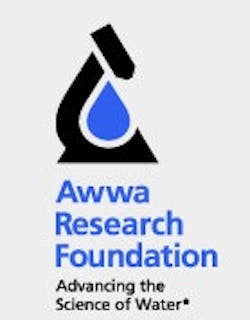AwwaRF Funds $1.5 Million in Research on Public Drinking Water
The Awwa Research Foundation (AwwaRF) has announced that it is funding 10 new studies for $1.5 million in its Unsolicited Research Program.
Through the program, AwwaRF provides financial support to researchers from universities and other research organizations to conduct studies on issues that impact the safety and accessibility of public drinking water. In February 2007, 130 pre-proposals were submitted by different organizations for research projects.
AwwaRF staff and the Unsolicited Proposal Review Committee—a volunteer committee of 14 professionals from the water-supply community—reviewed the pre-proposals and selected 28 to go on to the full proposal stage. On June 6 and 7, the committee selected 10 full proposals for the AwwaRF Board of Trustees to consider for funding. The Board approved the funding recommendations at its meeting on June 23.
The Unsolicited Research Program focuses exclusively on basic, proof-of-concept research that represents first steps towards technology breakthroughs for the drinking water community. The projects that will receive funding from AwwaRF will examine such drinking water issues as the impact of antibiotics in the water supply and the characteristics of polyethylene pipe for distributing water to the public. A list of the projects selected, and the principal investigator and submitting organization for each, appears below:
- Human Toxicogenomic Analysis of the Monohaloacetic Acids (Michael Plewa, University of Illinois)
- Identification of Genes Expressed During Excystment, Pre-Infection and Early Infection as Markers of Infectivity in Cryptosporidium (Paul Monis, Cooperative Research Centre for Water Quality and Treatment)
- Visualization and Quantification of UV Dose and Mixing in UV Reactors by 3D Laser-Induced Fluorescence (Jae-Hong Kim, Georgia Institute of Technology)
- Fate and Impact of Antibiotics in Slow-Rate Biofiltration Processes (Raymond Hozalski, University of Minnesota)
- Novel Pathways for the Formation of Disinfection By-Products (Richard Valentine, University of Iowa)
- The Role of DON in Fouling of Low Pressure Membranes (John Tobiason, University of Massachusetts)
- Evaluating Critical Relationships Between New and Aged Polyethylene Water Pipe and Drinking Water Contaminants Using Advanced Material Characterization Techniques (Andrea Dietrich, Virginia Polytechnic Institute)
- A New Water Source: Can Fuel Cells Provide Safe & Cost-Effective Potable Water Sources? (Paul Westerhoff, Arizona State University)
- Enhancing Removal of Viruses in Water Treatment Plants Using Zero-Valent Iron ( Pei Chiu, University of Delaware)
- Quantifying Hydrazine in Chloraminated Water & Wastewater (Issam Najm, Water Quality & Treatment Solutions)
AwwaRF accepts proposals through its Unsolicited Research Program once per year in a submittal process that begins in February. In 2006, seven unsolicited projects were funded for $1 million.
Source: AwwaRF
